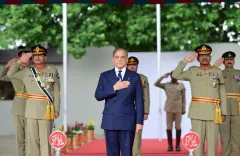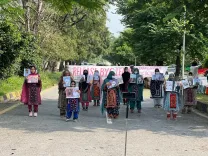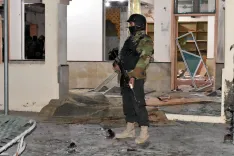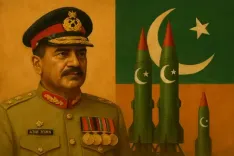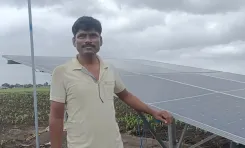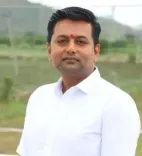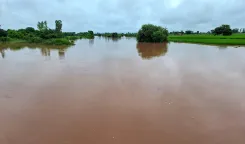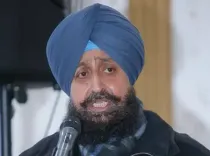Should Indian Citizens Postpone Travel to Nepal?
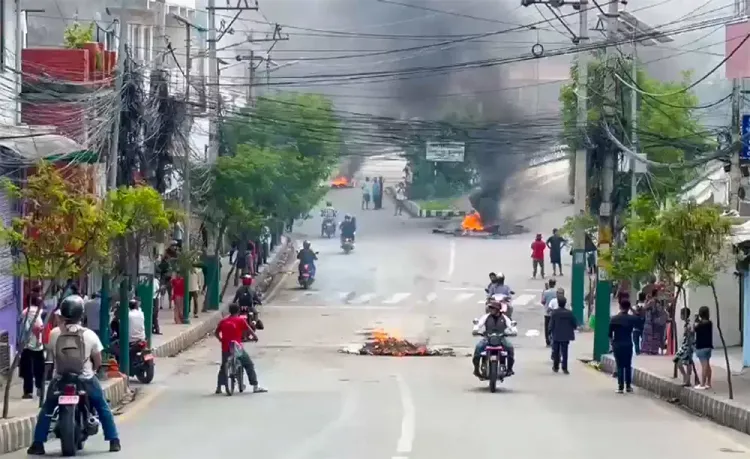
Synopsis
Key Takeaways
- Indian citizens are advised to postpone travel to Nepal.
- Current travelers should remain indoors and exercise caution.
- The situation in Nepal is volatile following significant protests.
- Curfews have been implemented in key cities.
- Protesters are demanding accountability and political change.
New Delhi/Kathmandu, Sep 9 (NationPress) The Indian Ministry of External Affairs (MEA) has urged its citizens to postpone their travel plans to Nepal until the situation in the neighboring nation stabilizes. This advisory comes on the heels of widespread protests that led to the tragic deaths of 19 individuals and the resignation of Prime Minister K P Sharma Oli.
"Given the evolving situation in Nepal, Indian citizens are recommended to delay travel there until conditions have improved. Those currently in Nepal should remain in their residences, avoid public areas, and exercise utmost caution," stated the MEA in an advisory released late Tuesday afternoon.
"Travelers are also encouraged to heed local safety advisories from Nepalese authorities and the Indian Embassy in Kathmandu. For any required assistance, please contact the Indian Embassy in Kathmandu via their helpline numbers," the MEA added.
Earlier in the day, the Indian government expressed its deep sorrow over the loss of young lives and emphasized that it is closely monitoring the situation in Nepal.
"Our condolences are with the families of the deceased, and we wish a swift recovery for the injured. As a neighboring friend, we hope all parties will show restraint and resolve issues peacefully through dialogue," the MEA stated.
The advisory also noted that a curfew has been imposed in Kathmandu and other cities in Nepal. Indian nationals are urged to remain vigilant and follow guidelines set by Nepali authorities.
In a dramatic turn of events, facing significant pressure from protests led by the younger generation, Prime Minister K P Sharma Oli resigned from his position on Tuesday, submitting his resignation to President Ram Chandra Poudel amid escalating protests against his leadership.
Oli, who was appointed Prime Minister on July 14, 2024, after a consensus with the Nepali Congress, found his government under severe strain as protests intensified following the killings of 19 demonstrators.
As the situation deteriorated on the second day of protests, ministers from the Nepali Congress began resigning, further pressuring the government.
General Secretaries of the ruling party, Gagan Thapa and Bishwo Prakash Sharma, publicly called for Prime Minister Oli's resignation, stating that the original seven-point agreement between the Communist Party of Nepal (Unified Marxist–Leninist) and Congress was no longer valid.
The political landscape in Nepal remains uncertain as all lawmakers from the Rastriya Swatantra Party have also resigned, demanding an interim government.
Fueled by anger over the killings during the protests, demonstrators targeted the residences of leaders and government buildings nationwide. Protesters stormed the parliament building in Baneshwor, Kathmandu, igniting it in flames, and attempted to breach the Singh Durbar, the government’s main administrative office.
Vandalism and arson incidents have been reported at government offices across the country, with local media documenting the unrest.
In response to the violence, Home Minister, Agriculture Minister, and Minister for Health and Population Pradip Poudel have resigned, expressing regret over the violent repression of the protests.
Videos of the burning of Prime Minister Oli's residence in Balakot, Bhaktapur, have circulated widely on social media, further igniting public outrage.

